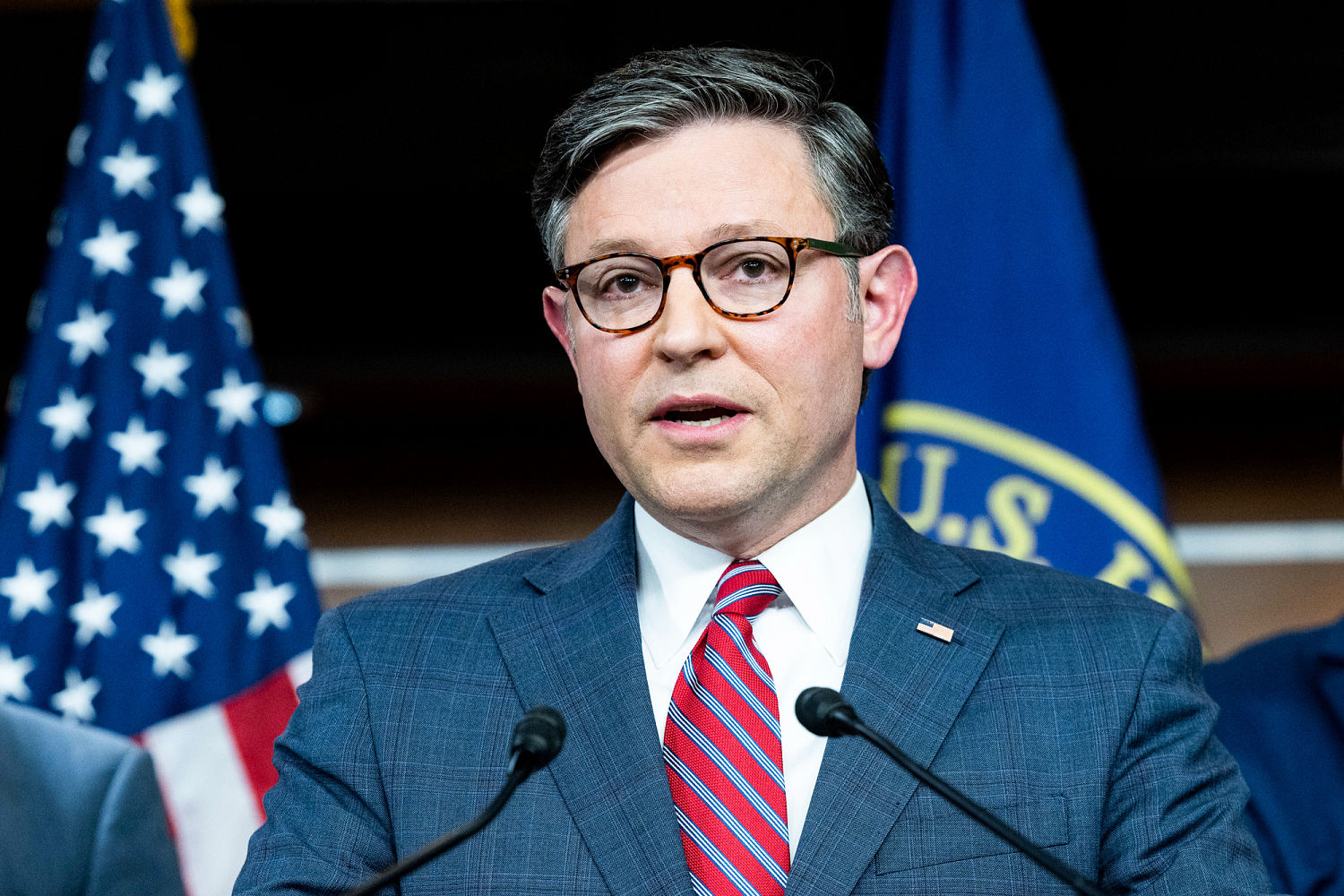
WASHINGTON — Speaker Mike Johnson on Wednesday yanked a government funding bill off the House floor hours before an expected vote after a growing number of disgruntled Republicans vowed to tank the measure.
Following Donald Trump’s lead, Johnson, R-La, had tied a six-month funding bill to the SAVE Act, which would overhaul voting laws to require people to show proof of citizenship when registering to vote. But now Johnson’s strategy to avert a shutdown at the end of the month is up in the air.
“We’re in the consensus-building business here in Congress with small majorities,” Johnson said as he announced the funding vote would be postponed.
The speaker added that his leadership team will continue to work through the weekend to flip GOP defectors. The government will shut down at 12:01 a.m. on Oct. 1 unless Republicans and Democrats strike a deal to extend funding.
“We’re having thoughtful conversations, family conversations, within the Republican conference, and I believe we’ll get there,” Johnson added. “People have concerns about all sorts of things. That’s how the process works and sometimes it takes a little more time.”
Senate Majority Leader Chuck Schumer, D-N.Y., Democrats and some Republicans are pushing for a “clean” funding bill that would keep the government open until December, after the November elections.
Johnson is dealing with a tough math problem. Because of their miniscule majority, House Republicans can only afford four GOP defections if all lawmakers vote. Rep. Joe Wilson, R-S.C., was hospitalized last night after collapsing at an event. And at least seven other Republicans have publicly stated they will vote against a stopgap measure, known as a continuing resolution or “CR.” Many others said they could join them.
Two sources told NBC News that leadership was anticipating as many as 15 GOP no votes if the vote had been held on Wednesday.
Those GOP defectors include Reps. Cory Mills of Florida, Jim Banks of Indiana, Matt Rosendale of Montana, Andy Biggs of Arizona, and Tim Burchett of Tennessee.
“I’ve continuously voted against CRs. I think it is terrible legislating,” Burchett said in an interview. “And the No. 1 threat to this country is fiscal irresponsibility. We are going off a fiscal cliff, and I think that every time we do this, we just kick that can further down the road.”
Mills, a fiscal conservative and military veteran who serves on the Armed Services and Foreign Affairs committees, said he has concerns about the nation’s surging debt but also that a CR through March would freeze Pentagon funding at a time when it needs to be boosted. (CRs, by definition, freeze funding at existing levels across the federal government).
“This CR would weaken our defense capabilities and the readiness of our military, just as global threats are rapidly evolving. It would prevent us from responding effectively to adversarial nations like China, hinder innovation, and delay modernization,” Mills said in a statement before the vote. “Six months is a long time in politics, but it’s an eternity in geopolitics, where quick responses are critical to countering foreign adversaries threatening to harm U.S. interests.”
He added that he had voted for the SAVE Act earlier this year and continues to support it.
“I’m a firm NO on bankrupting the nation and a YES on election integrity,” Mills said.
Trump has insisted that any government funding be tied to the SAVE Act, writing on his social media site Tuesday: “If Republicans in the House, and Senate, don’t get absolute assurances on Election Security, THEY SHOULD, IN NO WAY, SHAPE, OR FORM, GO FORWARD WITH A CONTINUING RESOLUTION ON THE BUDGET. … CLOSE IT DOWN!!!”
It’s unclear what comes next. Neither party wants to shut down the government with 54 days before the Nov. 5 election and lawmakers — particularly those facing tough races — are anxious to return to the campaign trail.
